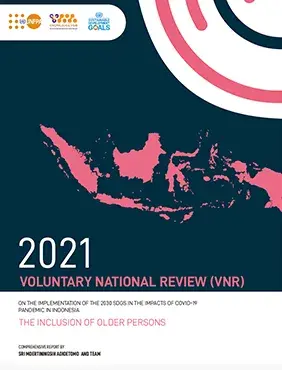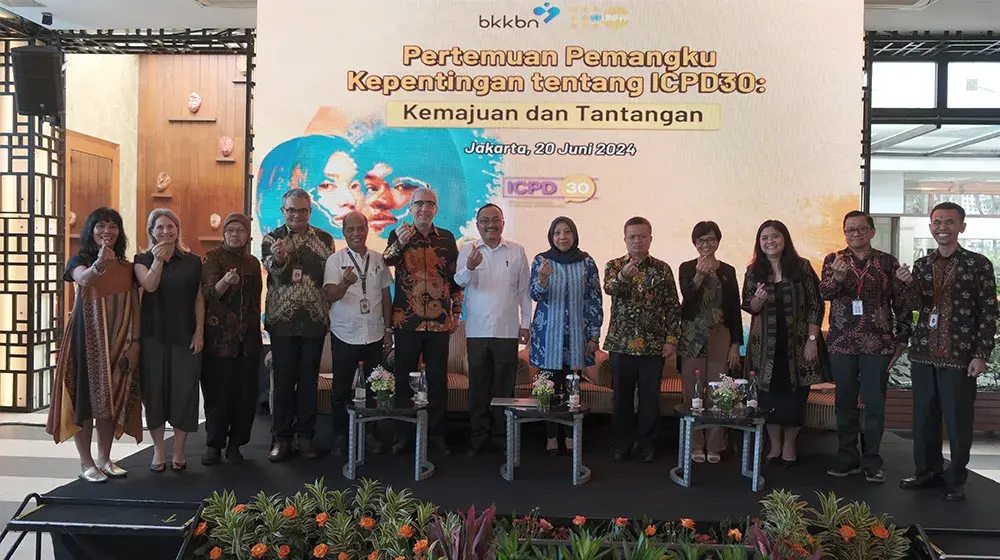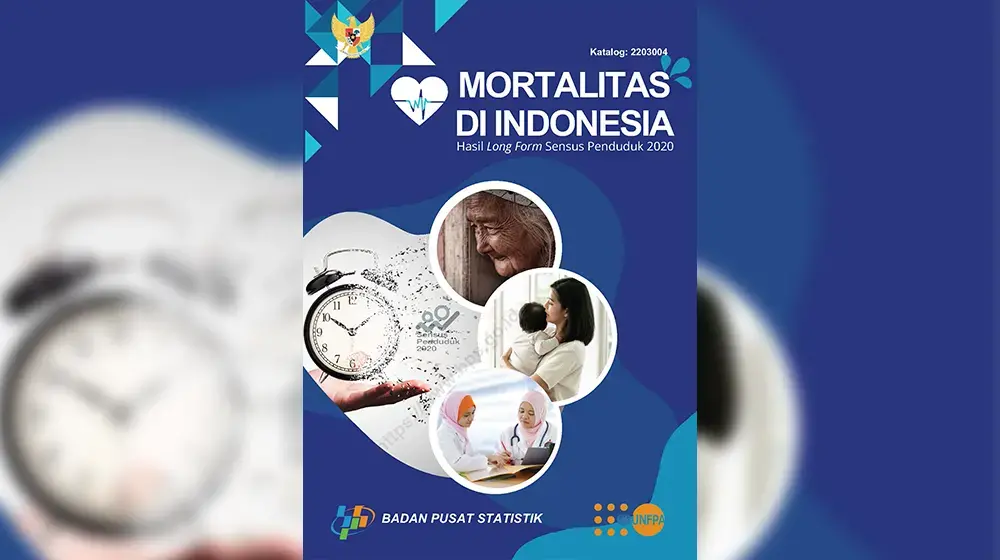Indonesia is doing better in mitigating the impact of COVID-19 than the neighboring countries (Hill, 2021). Nevertheless, the economic shutdown and mobility restriction have resulted in GDP contraction up to -5.31 percent during the second quarter of 2020 (y-o-y). Since then, it is slowly rebound, indicated by the reduction of the contraction to -3.49 percent during the third quarter and to -2.19 percent during the fourth quarter of 2020. The first quarter of 2021 shows that the contraction has become smaller to only -0.74 percent. However, this economic condition is not enough to lift the purchasing power of the people that the COVID-19 has hard hit. The -0.74 percent of economic contraction was contributed mostly by the contraction of household consumption by -1.22 (BPS, 5 May 2021). The COVID-19 has severe impacts on people's lives, especially on older persons who were already poor before the pandemic, as well as those who were vulnerable that could worryingly be plunged back into poverty. EXECUTIVE SUMMARY The poverty rate among older persons is higher than the national average (Goal 1.2). Intervention to ease older persons' financial burden through social protection (Goal 1.3) and expanding employment for those who still want and can work (Goal 8.5) may reduce the poverty rate of older persons, which in turn can help to accelerate national poverty reduction (Goal 1.2). However, the COVID-19 has put the national poverty rate back to the level of 2017 (10.12 percent). At that time, the GDP growth was 5.07 percent, while now the GDP growth is still -0.74 percent in the first quarter of 2021. Thus, the current situation is much worse than that before the pandemic. The effects of COVID-19 on older persons are carried through the nine goals of the 2030 SDGs agenda. Poverty and vulnerability increase food insecurity (Goal 2.1), which was apparent before the pandemic (Patunru & Amanta, 2021), in particular among older persons. Thus, there is a strong need to expand the coverage of social assistance in terms of food subsidy and prolong the duration of the social assistance (Goal 1.3). At the same time, the targeting system on the distribution of social assistance should be reviewed. Access to and affordability of health services and care have been disrupted, which increases the unmet need for health services and care among older persons (Goal 3.8). The health system has also been disrupted due to the mobilization of health workers and the closing of many primary health care centers and clinics (Witoelar & Ryanti, 2021). On the demand side of the health system, older persons are advised to stay home to avoid getting an infection by the deadly virus. As Indonesia is reaching toward population aging, the increase in the size of the older population is accompanied by an increasing prevalence of non-communicable diseases (Ministry of Health, Agency of Research and Development, 2019). The COVID-19 has hampered routine checkups, treatment, obtaining medicine re-prescription and rehabilitation services. This situation has worsened the conditions of older persons suffering from NCDs. In addition, the uncertainties about the end of the pandemic have also disrupted the mental health of those with NCDs. These add the burden to provide health care support for older persons with NCDs I xiv The effect of the disruption in the health system may take a long time to recover. To overcome the disruption, the government should prioritize the activation of primary health care and other clinic services to make health services closer to the patients in need. For older persons who have difficulties in accessing health services, home care may be a good alternative. One of the most critical issues is to find ways to include patients with NCDs, particularly those who need long-term care, in the entire health system, including referral and rehabilitation system (Goal 3). Aside from NCDs, the massive education and information about the COVID-19 might also threaten older persons' mental health (Bessel & Bexley, 2021; Witoelar & Ryanti, 2021). The family of the older persons and the government should be cautious regarding untold fear or hidden effects due to the pandemics. The feelings of fear, anxiety and loneliness due to quarantine or isolation can lead to stress and depression among older persons. The duration of depression is difficult to determine, but it may take longer to recover in a pandemic situation. This situation may add another burden to the family, whether in terms of costs or time caring for the patients. For the government, the financial costs of health may increase. It is suggested that health care and services should also be included in the existing health system. Regarding social health insurance, income and job loss among workers due to COVID-19 tend to lead to the discontinuation of JKN membership (Witoelar & Ryanti, 2021). If their family members paid older persons' membership before the pandemic, the job loss of family members might discontinue older persons' membership. This discontinuation contributes to the increase in unmet need for health services among older persons. It is hoped that the government increases the coverage of BPJS PBI and reallocates the budget if there is an indication of mistargeting (Goal 1.3). It is safe to conclude that the COVID-19 tends to delay the achievement of the entire Goal 3. On the other hand, the availability and accessibility of the internet have prevented the massive layoff of workers due to the strategy of working from home (Manning, 2021). Nevertheless, the unemployment rate among older persons has increased, especially among those who work in service and social service sectors that are hardly hit (BPS, Beritas Resmi Statitik on Employment, 5 November 2021; BPS Online Survey Social and Demographic Impact of COVID-19) (Goal 8). Those who are hard hit by the pandemic are those with income up to 3 million Rupiah a month. Many poor people have also experienced a decrease in income. Still, they are challenged with the increase in food prices due to the disruption of production, supply chain, and distribution (delaying the achievement of Goal 2 and Goal 8). Financial stimulus and social assistance have to be expanded and prolonged (Goal 1.3). Furthermore, access to mobile phones and the internet facilitates older persons to communicate with their families, relatives, and friends. This access reduces the feeling of loneliness due to isolation or Violence against older persons might also have increased. Income and job losses among older and younger people can affect the safety of senior persons. Even before the pandemic, older persons have experienced theft, theft with assaults, and sexual assaults (BPS, Stastitik Penduduk Lansia 2020). Unfortunately, data on the impact of COVID-19 on violence or abuse against older persons are rare. Data collected by the KOMNAS Perempuan (2021) reveal that violence increases among couples since the relationship become more tensed than before the pandemic, perhaps due to decline income, job loss, or dispute about child care. These issues may also lead to violence against older people if the couples live in households with older persons as their members (Goal 16.2). xv quarantine. However, older persons' access to the internet is only 11 percent, clustered among the higher educated, living in urban areas, and the wealthiest household expenditure category (Goal 17.8). Therefore, an intervention to increase IT literacy among older persons is a must. Increasing IT literacy among older persons can be done through the help of younger family or community members. For older persons who are still potentially economically active, having access to and using the internet facilitates them to obtain small credit for SMEs. Poor households with internet access can use KPS and KKS to get BPNT and PKH social assistance. Thus, the government has to expand internet access, especially in the areas of TIGA T, the frontier, outermost, and least developed regions. Infrastructure to increase the availability and accessibility of electricity and internet is highly needed (Goal 8.3 and Goal 8.5). As for Goal 12 and Goal 13, we recommend to include human perspectives in the targets and indicators. Population growth, people's behavior, and climate change are highly intertwined, as people are the agents as well as the objects within the entire system of climate. It is also recommended to treat COVID-19 as a natural disaster, beside a health crisis, as mandated by the Government through Presidential Decree no 7 of 2020 (then revised with the Decree no 9 of 2020). In coping with the disaster, adaptation and mitigation has to be done to inhibit the spread of the COVID-19 and its effects on people's lives. We conclude that the impacts of COVID-19 on older persons will delay the achievement of seven out of the nine goals presented in the coming VNR. Appropriate policies, strategies, and intervention focusing on mitigating the impact of the pandemic on older persons will help to accelerate poverty reduction at the national level.
What we do
2021 VOLUNTARY NATIONAL REVIEW (VNR): THE INCLUSION OF OLDER PERSONS

Publisher
UNFPA, Bappenas, Knowledge Hub Kesehatan Reproduksi Indonesia
Number of pages
114
Author
UNFPA, Bappenas, Knowledge Hub Kesehatan Reproduksi Indonesia
Publication
2021 VOLUNTARY NATIONAL REVIEW (VNR): THE INCLUSION OF OLDER PERSONS
Publication date
21 March 2022
Latest
Publications
29 December 2023
Mortalitas di Indonesia Hasil Long Form Sensus Penduduk 2020
Read storyRemote video URL



